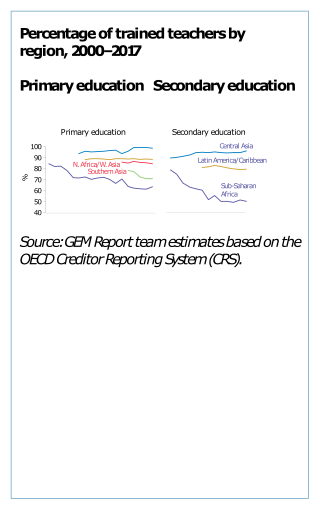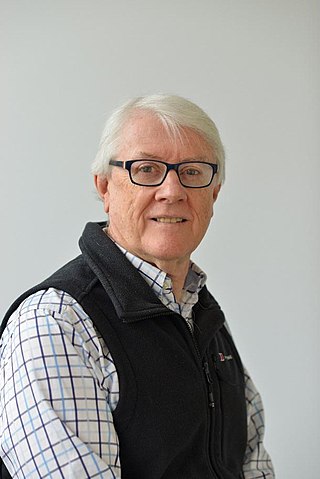
Knowledge transfer refers to transferring an awareness of facts or practical skills from one entity to another. The particular profile of transfer processes activated for a given situation depends on (a) the type of knowledge to be transferred and how it is represented and (b) the processing demands of the transfer task. From this perspective, knowledge transfer in humans encompasses an expertise from different disciplines: psychology, cognitive anthropology, anthropology of knowledge, communication studies and media ecology.
Sociotechnical systems (STS) in organizational development is an approach to complex organizational work design that recognizes the interaction between people and technology in workplaces. The term also refers to coherent systems of human relations, technical objects, and cybernetic processes that inhere to large, complex infrastructures. Social society, and its constituent substructures, qualify as complex sociotechnical systems.

The City and Guilds of London Institute is an educational organisation in the United Kingdom. Founded on 11 November 1878 by the City of London and 16 livery companies to develop a national system of technical education, the institute has been operating under royal charter, granted by Queen Victoria, since 1900. The Prince of Wales, later King Edward VII, was appointed the first president of the institute.
Development communication refers to the use of communication to facilitate social development. Development communication engages stakeholders and policy makers, establishes conducive environments, assesses risks and opportunities and promotes information exchange to create positive social change via sustainable development. Development communication techniques include information dissemination and education, behavior change, social marketing, social mobilization, media advocacy, communication for social change, and community participation.

The United Nations Information and Communication Technologies Task Force was a multi-stakeholder initiative associated with the United Nations which is "intended to lend a truly global dimension to the multitude of efforts to bridge the global digital divide, foster digital opportunity and thus firmly put ICT at the service of development for all".

Community informatics (CI) is an interdisciplinary field that is concerned with using information and communication technology (ICT) to empower members of communities and support their social, cultural, and economic development. Community informatics may contribute to enhancing democracy, supporting the development of social capital, and building well connected communities; moreover, it is probable that such similar actions may let people experience new positive social change. In community informatics, there are several considerations which are the social context, shared values, distinct processes that are taken by members in a community, and social and technical systems. It is formally located as an academic discipline within a variety of academic faculties including information science, information systems, computer science, planning, development studies, and library science among others and draws on insights on community development from a range of backgrounds and disciplines. It is an interdisciplinary approach interested in using ICTs for different forms of community action, as distinct from pure academic study about ICT effects.

Information and communications technology (ICT) is an extensional term for information technology (IT) that stresses the role of unified communications and the integration of telecommunications and computers, as well as necessary enterprise software, middleware, storage and audiovisual, that enable users to access, store, transmit, understand and manipulate information.
The International Federation for Information Processing (IFIP) is a global organisation for researchers and professionals working in the field of computing to conduct research, develop standards and promote information sharing.

Teacher education or teacher training refers to programs, policies, procedures, and provision designed to equip (prospective) teachers with the knowledge, attitudes, behaviors, approaches, methodologies and skills they require to perform their tasks effectively in the classroom, school, and wider community. The professionals who engage in training the prospective teachers are called teacher educators.
OCR Nationals are vocationally related qualifications which were officially launched by the OCR Board in September 2004. The qualifications are designed to meet the needs of those seeking vocational education in place of the traditional, theory-intensive, academic route. Although the target audience are teenagers (14-19), the qualifications are also suitable for adult learners, much like the GNVQ. The OCR Nationals are being phased out, and replaced by the Cambridge Nationals.
MEDFORIST is a project aimed at implementing a Euro-Mediterranean network for sharing information systems and technology (IST) resources. Started in August 2002, MEDFORIST is a project of the Euro-Mediterranean Information Society (EUMEDIS), an initiative of the European Union, ultimately aimed at establishing an EU-MED free trade zone by 2010 and setting up an information network system among European and Mediterranean universities and institutes in the field of information technology (IT). The project is coordinated by Centre TIME of the Grenoble école de management.

African Journals OnLine (AJOL) is a South African non-profit organisation, which is in the headquarters of Grahamstown, it is dedicated to improve the online visibility and access to the published scholarly research of African-based academics. By using the internet as a gateway, AJOL aims to enhance conditions for African learning as well as African development.
The Science Communication Observatory is a Special Research Centre attached to the Department of Communication of the Pompeu Fabra University in Barcelona, Spain, set up in 1994. This centre is specialized in the study and analysis of the transmission of scientific, medical, environmental and technological knowledge to society. The journalist Vladimir de Semir, associated professor of Science Journalism at the Pompeu Fabra University, was the founder and is the current director of the centre. A multidisciplinary team of researchers coming from different backgrounds is working on various lines of research: science communication; popularization of sciences, risk and crisis communication; science communication and knowledge representation; journalism specialized in science and technology; scientific discourse analysis; health and medicine in the daily press; relationships between science journals and mass media; history of science communication; public understanding of science; gender and science in the mass media, promotion of scientific vocations, science museology, etc.

This National Conference is the biennial conference of the Australian Council for Computers in Education (ACCE). The conference opens to anyone who in interested in sharing their digital teaching experiences. The first conference took place in Melbourne, 1983. Between 1983 and 1996, the conference was held annually across Australia. After 1996, the conference became biennial. From 1994, a series of frameworks were launched in Australia to integrate Information and Communication Technology (ICT) into education. Western Australia's 2001 Competency framework for Teachers identified teachers as an important component in developing computer education. In 2010, Education Minister Julia Gillard, proposed an education agenda to provide Australia a better education system. Besides ACCE, there are many organizations and conferences supporting the development of computer education in Australia. Technology in education consists of two major approaches: Learning with technology and learning from technology. Technology in education learning and traditional classroom learning have different focuses and defining features. There are also four types of computer education: Bring your own device(BYOD), blended learning, online learning, and flipped learning.
Design for All in the context of information and communications technology (ICT) is the conscious and systematic effort to proactively apply principles, methods and tools to promote universal design in computer-related technologies, including Internet-based technologies, thus avoiding the need for a posteriori adaptations, or specialised design.
The Global e-Schools and Communities Initiative is an international not-for-profit organisation providing demand-driven assistance to developing countries seeking to harness the potential of Information and Communication Technologies (ICT) to improve their education systems.
The Marchmont Observatory conducts academic research in support of local government policy formation concerning skills, employment and education for adults through networking, the development of learning programmes and research.
ICT4peace is a policy and capacity-building oriented international foundation. The purpose is to save lives and protect human dignity through Information and Communication Technology (ICT). The Foundation promotes cybersecurity and a peaceful cyberspace through international negotiations with governments, companies and non-state actors. It also explores and champions the use ICTs to facilitate communication between peoples, communities and stakeholders involved in humanitarian or conflict-related crisis management and crisis mapping, humanitarian assistance and peacebuilding. It is registered as ICT for Peace in the Geneva business directory.

Raymond L. Ison is an Australian-British cybernetician, systems scholar/scientist, and Professor of Systems at the Open University in the UK. He is currently President of the International Federation for Systems Research (IFSR). He was also Professor Systems for Sustainability at Monash University, and fellow at the Centre for Policy Development, and President of the International Society for the Systems Sciences in the year 2014-15. He is known for his work on systems praxeology within rural development, sustainable management, systemic governance and the design and enactment of learning systems.









